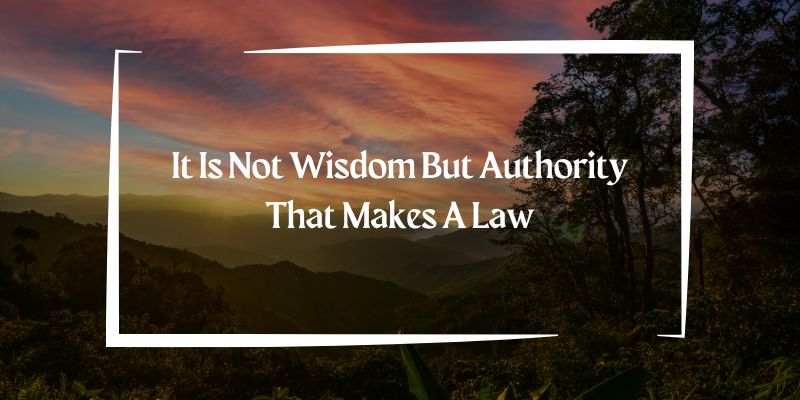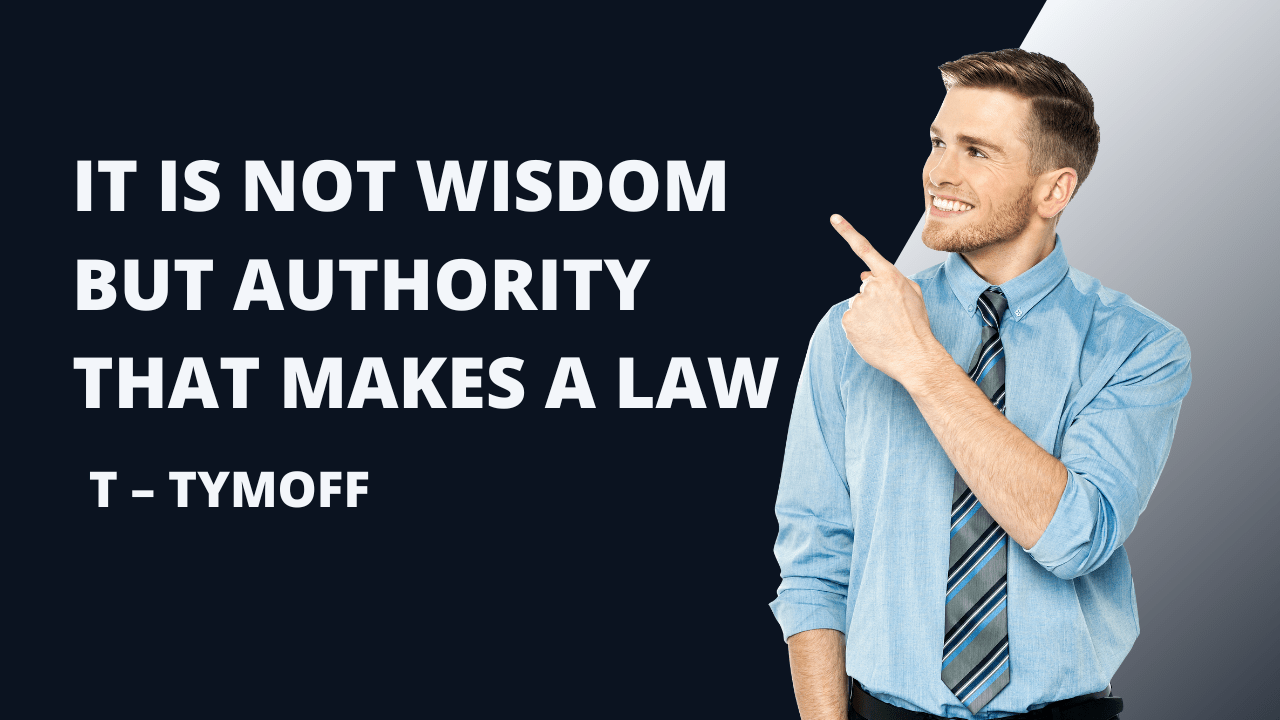This statement, attributed to T. Tymoff, highlights the complex relationship between wisdom and authority in the realm of law. While wisdom is essential for creating just and equitable laws, authority is the force that gives laws their binding power.
What is wisdom?
Wisdom is the ability to apply knowledge and experience to make sound judgments. It is often characterized by a deep understanding of human nature, a strong sense of ethics, and a commitment to fairness. Wise people are able to see the big picture and consider the long-term consequences of their actions.
What is authority?
Authority is the power to enforce obedience. It can be derived from a variety of sources, such as government, tradition, or expertise. Authority figures have the ability to make rules and regulations, and to punish those who violate them.

How do wisdom and authority relate to law?
Laws are rules of conduct that are enforced by the government. They are intended to maintain order and protect the rights of individuals. Laws can be based on a variety of factors, including morality, tradition, and public safety.
Wisdom plays an important role in the creation of good laws. Wise lawmakers are able to draft laws that are fair, effective, and consistent with the values of society. They also consider the potential consequences of laws before they are passed.
However, wisdom is not enough to make a law. Laws also require authority to back them up. Without authority, laws would be nothing more than suggestions. The government has the authority to enforce laws through its police and courts.
Examples of laws that are based on wisdom
Here are some examples of laws that are based on wisdom:
- Laws that protect individual rights, such as the right to free speech and the right to a fair trial.
- Laws that promote social justice, such as laws that prohibit discrimination and laws that protect the environment.
- Laws that promote public safety, such as laws that regulate traffic and laws that prohibit violence.

Examples of laws that are not based on wisdom
Here are some examples of laws that are not based on wisdom:
- Laws that are based on prejudice or bigotry, such as laws that discriminate against certain groups of people.
- Laws that are oppressive or tyrannical, such as laws that limit basic freedoms or laws that punish minor offenses harshly.
- Laws that are ineffective or counterproductive, such as laws that try to ban things that are difficult or impossible to ban.
The importance of balancing wisdom and authority
It is important to balance wisdom and authority in the realm of law. Laws should be based on sound principles of justice and fairness, but they also need to be enforceable. Without authority, laws are nothing more than empty words.
One way to ensure that laws are both wise and enforceable is to have a system of checks and balances. This means that different branches of government have the power to oversee and review each other’s actions. It also means that the people have the right to hold their government accountable for the laws it passes.
Another way to ensure that laws are wise is to involve the public in the lawmaking process. This can be done through public hearings, town hall meetings, and other means. By gathering input from a variety of stakeholders, lawmakers can get a better understanding of the needs of the community and create laws that are more likely to be effective.

Conclusion
T. Tymoff’s statement that “It is not wisdom but authority that makes a law” is a reminder of the important role that both wisdom and authority play in the creation and enforcement of laws. While wisdom is essential for creating just and equitable laws, authority is the force that gives laws their binding power. It is important to balance these two factors in order to create a legal system that is both effective and fair.
Additional thoughts
In addition to the above, I would like to add the following thoughts on the relationship between wisdom and authority in the realm of law:
- Wisdom is not always easy to define or measure. What one person considers to be wise, another person may consider to be foolish. This is why it is important to have a variety of voices and perspectives represented in the lawmaking process.
- Authority can be misused. Just because someone has the authority to make a law does not mean that they will use that authority wisely. This is why it is important to have checks and balances in place to prevent the abuse of power.
- The law is constantly evolving. What was considered to be wise and just yesterday may not be considered to be wise and just today. This is why it is important to review and update laws on a regular basis.
I believe that the ideal legal system is one that strikes a balance between wisdom and authority. It is a system in which laws are created by wise lawmakers and enforced by fair and just authorities. It is also a system in which the people have a voice in the lawmaking process.










